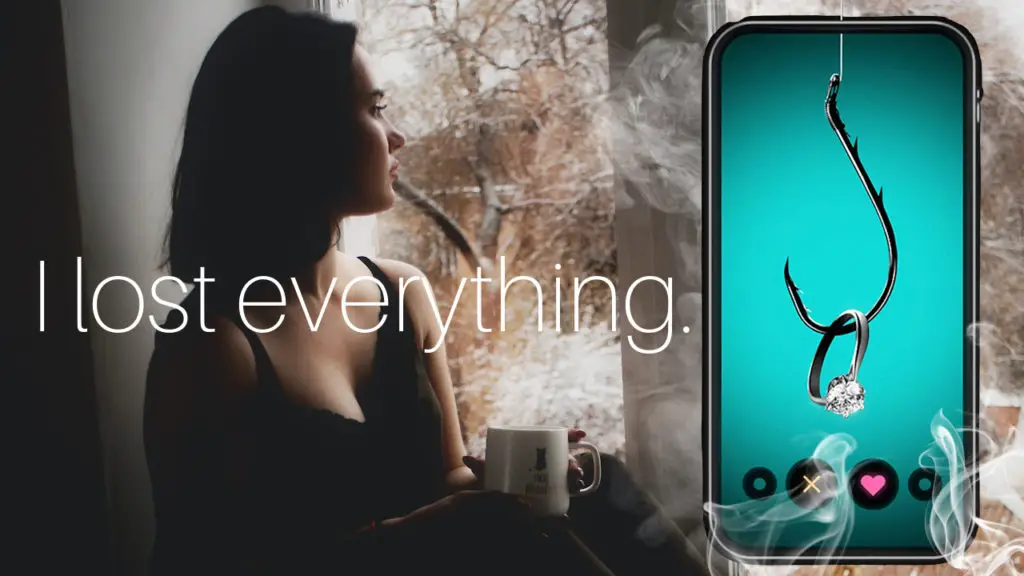The victim lost her family’s life savings in a dating app cryptocurrency scam. Someone she met on Bumble encouraged her to create an account on a legitimate cryptocurrency site, but then sent her a link to what he called a “cryptocurrency exchange platform” and told her to deposit her money there. Here’s how you can protect yourself from it.
Dating crypto Scam becomes something like a cottage industry. Romance scammers conned victims out of $500 million worth of cryptocurrency last year. According to FTC report, in 2021 total report losses were more than 6 times what they were in 2017 and the number is keep growing from here.
Crypto romance scammers target those who are actively looking to date through apps like Tinder, Bumble, Coffee meet bangle, Hinge, and more. They may message you on Instagram, or even WhatsApp, and pretend it was by mistake.
The conversation starts something like this…


Pig Butchering – sha zhu pan (杀猪盘)
Unlike the so-called Nigerian prince scams, where a stranger emails you with an offer of money, crypto dating scams aren’t obvious at first.
They invest a lot of time in their victims, maintaining a relationship until they feel that trust has been established, and the victim is ready to be exploited.
The majority of crypto dating scams follow the pattern called “pig butchering,” or “sha zhu pan” (杀猪盘) in Chinese because scammers continuously flatter and make their victims feel good before manipulating them, just like a farmer fattens a pig before they get slaughter.
Scammers spend weeks or months in a relationship before bringing up crypto and the game begins.
They put a lot of effort into walking you through your first crypto purchase through legitimate exchanges like Coinbase, Binance, and Crypto.com and things only go downhill from there.
This type of psychological manipulation is called “social engineering,”
Before crypto became the main dish of choice for pig butcherers, scammers convinced you to buy online gift cards. These cards offered less consumer protection than cash transfers – perfect for scammers.
Then crypto came, with its promise of self-custody and little to no customer protection – even better!
The scammer will have you set up an account with one of their site controlled by their fellow member, giving you a false sense of security because the sites feel real.
They may also tell you about lucrative returns through “liquidity pools” or “liquidity mining” in decentralized finance, or DEFI. They want to help you achieve the same returns, and they’ll only tell you where to invest.
Under the guidance of your scammer, you may end up investing your funds into coins controlled by scammers.
The odds aren’t in your favor when it comes to investing in projects recommended by online strangers. Scammers will later dry up the liquidity pool you are investing in, leaving you with worthless tokens.
How to protect yourself?
Most of the victims of crypto dating scams counter this their online partner refuses to meet them in person or video call them because they’re shy, and they aren’t ready yet.
The reason scammers use photos of other people is to create realistic online profiles. To counter this using a reverse image search of those photos can help you confirm the identity of the person.
Download the photo/s of the suspected scammer and try Google’s reverse image search or TinEye – you can upload the photo and use the camera icon on Google or the upload button on TinEye to search by that image.
If no match comes up, that doesn’t necessarily mean the pictures really belong to that person – the photos could also be harvested from a private social media profile that the scammer had access to.
But some scammers are too clued up to use real people’s photos. They may also use AI-generated of humans that don’t exist. Another website you should check out by https://www.globalantiscam.org/scam-websites
They offer a variety of scammer websites often use to manipulate the victim. Please type into the search if you see the site pop up here. It is a red flag.
As hard as it may be to not trust your heart when you’re looking for love, it’s important to remain vigilant and skeptical, especially if money enters the conversation with anyone you’ve met online, or you’ll not only end up heartbroken but plain old broke, too.
Source:
Cointelegraph Pig Slaughtering Article
Business Insider Crypto Scammers

